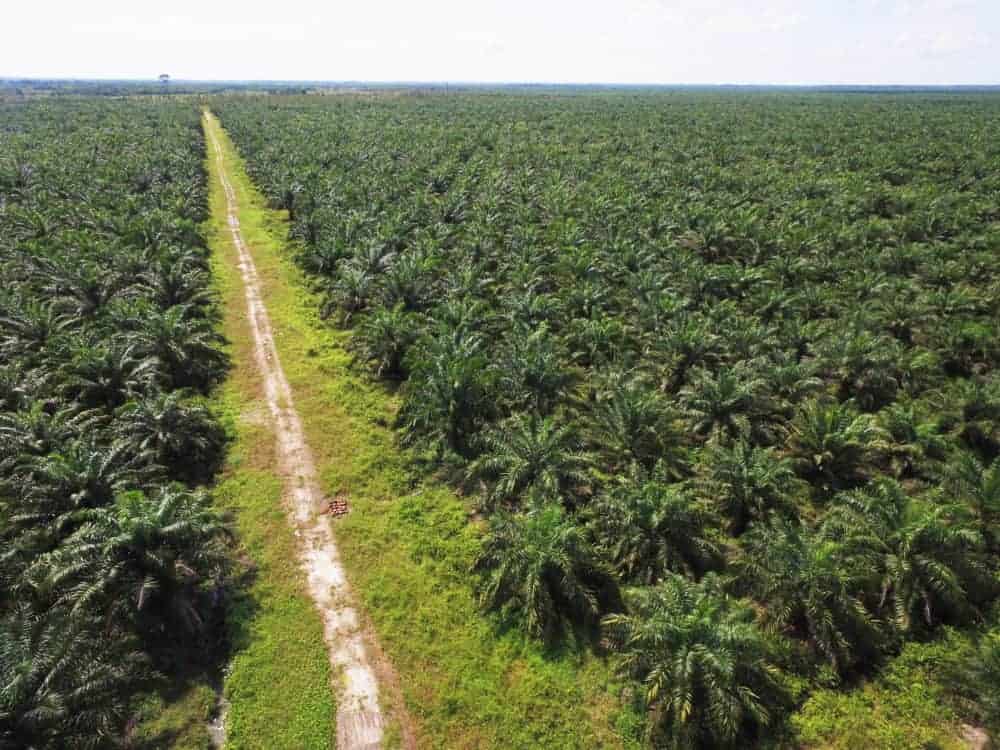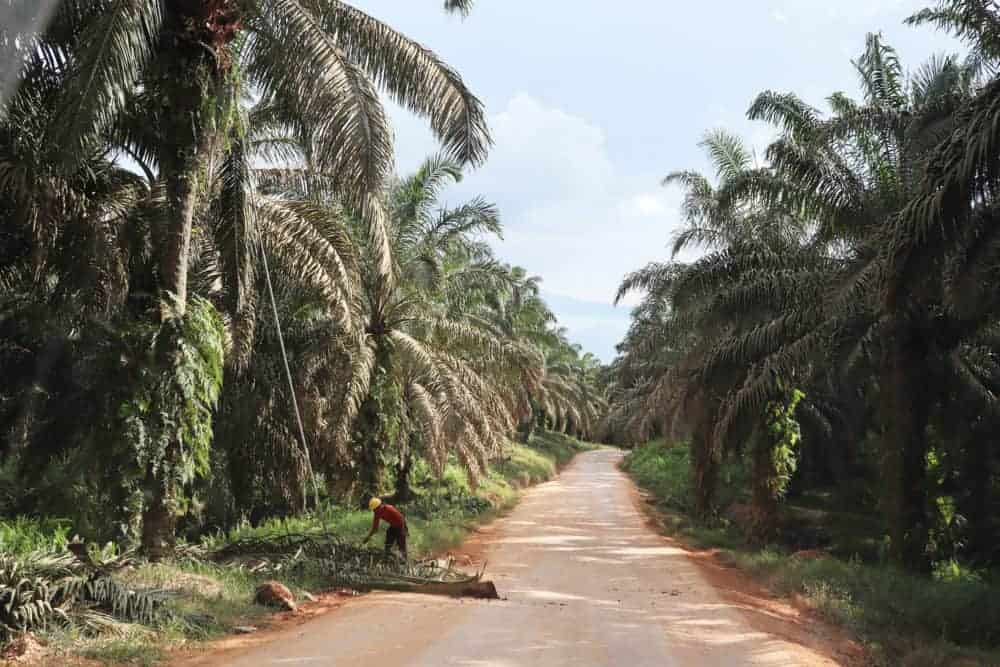Christmas is right around the corner and so is the time to enjoy all kinds of Christmas sweets. Did you know that half of all products in a regular supermarket contain palm oil? This includes the sweets we often have for Christmas.
Palm oil is a vegetable oil extracted from the fruit of the oil palm and its kernel. Currently, most oil palm plantations are found in Southeast Asia where Indonesia and Malaysia account for a staggering 80 percent of the world’s palm oil production. Palm oil is the most used vegetable oil in the world as it grows quickly and is relatively inexpensive to grow. But what are the issues with palm oil?
The industry causes deforestation
The palm oil production has significant negative effects on the rainforest, orangutans and all species living in the forest. Half of the cleared rainforest in Borneo is due to the palm oil industry. When the old rainforest is destroyed, the orangutan and thousands of other species lose their home and thus their chance of survival. The orangutans are isolated within small enclaves of the rainforests, unable to forage for food and too close to humans. Additionally, the forest is often burnt after having been cleared. This can start uncontrollable forest fires, which destroy even more of the forest. The smoke from the fires causes health risks for both humans and animals and pollutes the atmosphere which further affects the climate.

The problem is not the oil palm plantations or the palm oil in themselves. The problem is rather the destruction of the rainforest, and thus the orangutan’s habitat, for the benefit of palm oil production.
Certified palm oil is a step in the right direction
Roundtable of Sustainable Palm Oil (RSPO) is an industry group and was originally a WWF initiative. RSPO appeals to all parties in the palm oil consumption chain, from buyers to consumers. Members of RSPO are committed to meet criteria of increased sustainability and reduced forest degradation in their operation and production.
The actual effect of the RSPO certification has, however, received a lot of criticism. Today, the palm oil industry is massive and the areas used for production are only growing. The deforestation must come to a stop if we are to save the orangutans and their rainforest home.

At the end of 2018, Save the Orangutan attended RSPO’s Annual Meeting. There, new criteria for the RSPO certification were presented and approved. These criteria aim to stop logging activities in areas with high conservation value, high carbon stock and peat forest areas.
Save the Orangutan sees this as a positive development and supports the RSPO initiative, as it’s currently the best certification standard for palm oil. Yet, there is still a need for improvements as well as ensuring that the new criteria are implemented. There is no doubt, however, that you as a consumer send a signal by asking for RSPO certified products when you shop.
Why certified palm oil over a boycott?
Compared to other alternatives, the palm oil industry is much more space efficient. Replacing palm oil with for instance coconut or soy would, therefore, only require larger production areas. A massive boycott can thus lead to a setback where additional rainforest areas are destroyed. It could also mean a huge economic loss for millions of people, which would have major consequences in a low-income country like Indonesia. Last but not least, a European boycott can cause the palm oil industry to move to other markets where sustainability is not a priority. The focus must instead be set on ensuring a sustainable production that does not cause negative consequences for forests or animals.
The EU has established a requirement for food products containing palm oil to be labelled clearly. This way, you as a consumer can easily spot the RSPO-certified palm oil and can actively decide which products you buy or not.
Save the Orangutan does not yet consider the RSPO certification as a guarantee for a sustainable palm oil production. It is, however, a positive development in the industry. It is also the best possibility for consumers to support a responsible development in the industry.
Thus, Save the Orangutan recommends that you take a look at the sweets you buy this Christmas and choose the ones that at least are RSPO certified. This way, you as a consumer take your responsibility and support a positive development in the palm oil industry.